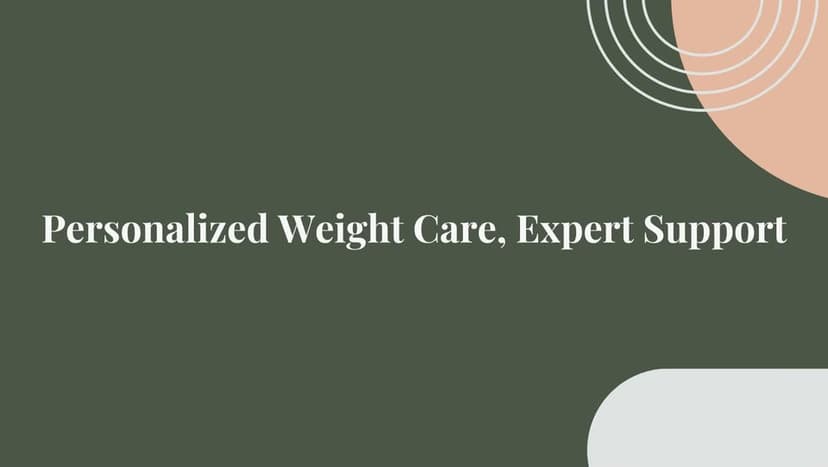Antioxidants are special molecules that help keep our bodies healthy by fighting off harmful substances called free radicals. These free radicals can cause damage to our cells and speed up the aging process. By eating foods rich in antioxidants, we can protect ourselves from various diseases and promote better overall health. This article will explore the benefits of antioxidants, especially in relation to aging and mental health, and provide practical tips for incorporating them into our diets.
Key Takeaways
- Antioxidants protect our cells from damage caused by free radicals, which can lead to aging and disease.
- Eating a diet rich in antioxidants can help slow down the aging process and improve overall health.
- Key antioxidants like Vitamin C and E play important roles in maintaining our health and preventing diseases.
- Foods like blueberries, green tea, and kale are packed with antioxidants and should be included in our diets.
- Reducing oxidative stress through antioxidants can also support mental health and lower the risk of mood disorders.
Understanding Antioxidants and Their Role in Cellular Health
What Are Antioxidants?
Antioxidants are special molecules that help protect our bodies from harmful substances called free radicals. Free radicals are produced when our bodies process food and react to the environment. While they can help fight infections, too many free radicals can damage our cells and lead to health problems.
How Antioxidants Combat Free Radicals
Antioxidants work by neutralizing free radicals, which helps to reduce the damage they can cause. Here are some key points about how they function:
- They donate electrons to free radicals, stabilizing them.
- They help prevent oxidative stress, which can harm cells.
- They support overall cellular health, making it easier for our bodies to function well.
The Impact of Free Radicals on Cellular Health
When free radicals outnumber antioxidants, it can lead to oxidative stress. This stress can cause:
- Damage to DNA, proteins, and lipids.
- Increased risk of chronic diseases like cancer and heart disease.
- Premature aging and decline in cellular function.
Oxidative stress is linked to many health issues, including heart disease and memory loss. By consuming antioxidant-rich foods, we can help our bodies fight back against these harmful effects.
The Connection Between Antioxidants and Anti-Aging
How Antioxidants Slow Down Aging
Antioxidants are important for keeping our bodies healthy as we age. They help fight off harmful substances called free radicals, which can cause damage to our cells. By reducing the effects of free radicals, antioxidants can help slow down the aging process.
Key Antioxidants for Anti-Aging
Some of the most effective antioxidants that support healthy aging include:
- Vitamin C: Helps with healing and supports the immune system.
- Vitamin E: Protects cells from damage and supports skin health.
- Flavonoids: Found in fruits and vegetables, they help reduce inflammation and improve heart health.
Scientific Evidence Supporting Anti-Aging Benefits
Research shows that antioxidants can lower the risk of various diseases and promote better health as we age. Here are some key findings:
| Study Focus | Findings |
|---|---|
| Cancer Prevention | Antioxidants may help reduce the risk of certain cancers. |
| Heart Health | Regular intake of antioxidants is linked to better heart health. |
| Cognitive Function | Antioxidants can support brain health and reduce the risk of memory loss. |
Antioxidants play a crucial role in maintaining our health and well-being as we age. By including antioxidant-rich foods in our diet, we can enhance our chances of aging gracefully.
Antioxidant-Rich Foods for Better Health
Top Antioxidant-Rich Foods
Antioxidants are found in many delicious foods. Here are some of the best sources:
- Blueberries: These tiny fruits are packed with antioxidants and can help protect against heart disease and cancer.
- Beans: Black beans are not only high in antioxidants but also provide fiber, which is good for heart health.
- Green Tea: This drink contains a powerful antioxidant called EGCG, which helps fight free radicals and may slow aging.
- Tomatoes: Rich in lycopene, tomatoes can lower the risk of certain cancers and heart disease.
- Kale: This leafy green is loaded with vitamins and antioxidants, making it a superfood for your health.
How to Incorporate Antioxidants into Your Diet
Adding more antioxidants to your meals can be easy and tasty. Here are some simple tips:
- Start your day with berries: Add blueberries or strawberries to your cereal or yogurt.
- Snack on nuts: Choose nuts like almonds or walnuts for a healthy, antioxidant-rich snack.
- Drink green tea: Swap your regular tea or coffee for green tea to boost your antioxidant intake.
- Include leafy greens: Make sure to have a salad with kale or spinach at lunch or dinner.
Benefits of a Diet Rich in Antioxidants
Eating foods high in antioxidants can lead to many health benefits:
- Reduced risk of diseases: Antioxidants can help lower the chances of heart disease, cancer, and other illnesses.
- Better brain health: They may improve memory and reduce the risk of mood disorders.
- Slower aging process: A diet rich in antioxidants can help you look and feel younger.
Eating a variety of antioxidant-rich foods is a simple way to support your health and well-being. By making small changes to your diet, you can enjoy the benefits of these powerful nutrients.
Antioxidants and Disease Prevention
Antioxidants play a crucial role in keeping our bodies healthy by fighting off harmful substances known as free radicals. These molecules can lead to serious health issues if not kept in check. Here’s how antioxidants help prevent diseases:
Role of Antioxidants in Cancer Prevention
- Antioxidants may help lower the risk of developing certain types of cancer.
- They work by neutralizing free radicals that can damage cells and lead to cancer.
- Foods rich in antioxidants, like fruits and vegetables, are recommended for cancer prevention.
Antioxidants and Heart Health
- Antioxidants can improve heart health by reducing inflammation and preventing damage to blood vessels.
- They help lower cholesterol levels and improve circulation.
- Regular consumption of antioxidant-rich foods can lead to a healthier heart.
Reducing the Risk of Neurodegenerative Diseases
- Antioxidants may protect the brain from diseases like Alzheimer’s and Parkinson’s.
- They help reduce oxidative stress, which is linked to brain aging and cognitive decline.
- Including antioxidants in your diet can support long-term brain health.
| Disease Type | Antioxidant Benefits |
|---|---|
| Cancer | May lower risk and slow development |
| Heart Disease | Reduces inflammation and improves circulation |
| Neurodegenerative Diseases | Protects brain health and reduces decline |
Antioxidants are essential for maintaining good health and preventing diseases. By including them in your diet, you can support your body’s defenses against various health issues.
Mental Health Benefits of Antioxidants
Antioxidants and Brain Function
Antioxidants play a crucial role in protecting our brain from damage caused by free radicals. These harmful molecules can lead to oxidative stress, which is linked to various mental health issues. By reducing oxidative stress, antioxidants help maintain brain health and function.
Reducing Depression and Anxiety with Antioxidants
Research suggests that a diet rich in antioxidants may help lower the risk of mood disorders. Here are some key points:
- Antioxidants can help reduce inflammation in the brain.
- They may improve mood and decrease symptoms of anxiety.
- Foods high in antioxidants, like fruits and vegetables, can support overall mental well-being.
Studies on Antioxidants and Mental Health
Several studies have explored the connection between antioxidants and mental health. Some findings include:
- A study found that individuals with higher antioxidant levels reported fewer symptoms of depression.
- Research indicates that antioxidants may protect against cognitive decline as we age.
- Antioxidants like Vitamin E and C have been linked to better brain health in older adults.
Including antioxidant-rich foods in your diet can be a simple yet effective way to support your mental health and overall well-being.
Practical Tips for Increasing Antioxidant Intake
Simple Ways to Add Antioxidants to Your Diet
- Start your day with berries. Add blueberries, strawberries, or raspberries to your breakfast cereal or yogurt.
- Snack on nuts. Choose nuts like walnuts or almonds, which are high in vitamin E and healthy fats.
- Include leafy greens. Make sure to have spinach, kale, or other greens in your meals to boost your antioxidant intake.
Daily Habits for Boosting Antioxidant Levels
- Drink green tea instead of sugary drinks. Green tea is rich in antioxidants and can help fight free radicals.
- Use herbs and spices like turmeric and cinnamon in your cooking. They not only add flavor but also provide health benefits.
- Choose whole fruits over fruit juices to get more fiber and antioxidants.
Long-Term Benefits of Consistent Antioxidant Consumption
Regularly eating foods high in antioxidants can help protect your body from diseases and support healthy aging. A diet rich in antioxidants can lead to better overall health and a lower risk of chronic diseases.
Eating a variety of colorful fruits and vegetables is a simple way to ensure you’re getting enough antioxidants in your diet. The more colors on your plate, the better!
Oxidative Stress and Its Impact on Aging
Understanding Oxidative Stress
Oxidative stress happens when there are too many free radicals in the body. Free radicals are unstable molecules that can damage cells. This damage can lead to various health problems, including aging and diseases like cancer and heart disease.
How Antioxidants Reduce Oxidative Stress
Antioxidants are substances that help neutralize free radicals. They can be found in many foods, especially fruits and vegetables. Here are some key points about how antioxidants work:
- They donate electrons to free radicals, stabilizing them.
- They help repair damaged cells.
- They reduce inflammation in the body.
Long-Term Effects of Oxidative Stress on the Body
Over time, oxidative stress can lead to serious health issues. Some of the long-term effects include:
- Increased risk of chronic diseases (like diabetes and heart disease).
- Accelerated aging of the skin and body.
- Cognitive decline, affecting memory and learning.
Reducing oxidative stress through a diet rich in antioxidants can help improve overall health and slow down the aging process.
Conclusion
In summary, antioxidants play a vital role in keeping our cells healthy and can help us age better. They fight off harmful substances called free radicals that can damage our cells and lead to various health issues. By eating foods rich in antioxidants, like berries, nuts, and leafy greens, we can lower our chances of getting sick and improve our overall well-being. This means we can enjoy a healthier life as we grow older. So, making small changes to our diet can have big benefits for our health and help us age gracefully.
Frequently Asked Questions
What are antioxidants and why are they important?
Antioxidants are special molecules that help protect our bodies from damage caused by free radicals. Free radicals are harmful substances that can form when our bodies process food or react to things in the environment. Antioxidants help keep our cells healthy.
How do antioxidants help with aging?
Antioxidants can slow down the aging process by fighting off free radicals that damage our cells. By consuming foods rich in antioxidants, we can help our bodies stay healthy and age more gracefully.
What foods are high in antioxidants?
Some foods that are packed with antioxidants include berries, beans, nuts, green tea, and dark chocolate. Eating a variety of these foods can help increase your antioxidant intake.
Can antioxidants prevent diseases?
Yes, antioxidants may help lower the risk of certain diseases, such as heart disease and cancer, by reducing damage to our cells. They can also support brain health and help prevent memory loss.
How can I easily add more antioxidants to my diet?
You can add more antioxidants by including fruits and vegetables in your meals, like adding berries to your cereal or snacking on nuts. Drinking green tea instead of sugary drinks is another great way.
Are there any side effects of consuming too many antioxidants?
Generally, getting antioxidants from food is safe, but taking high doses of antioxidant supplements may not be good for everyone. It's best to get antioxidants from a balanced diet.
























